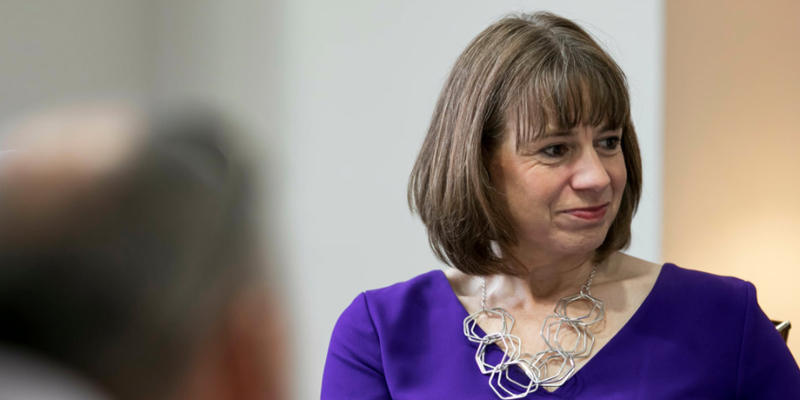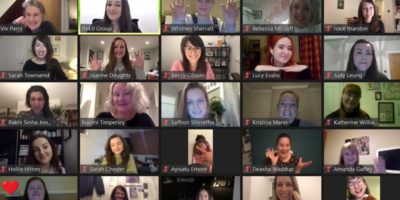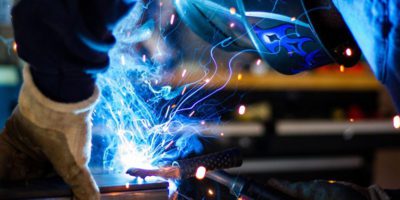Dawn Bonfield MBE is a Royal Society entrepreneur in residence at King’s College London, founder of Towards Vision, a company that works towards a vision of diversity and inclusion in engineering, and Royal Academy of Engineering visiting professor of inclusive engineering at Aston University. Dawn is the past president and former chief executive of the Women’s Engineering Society. With a background in materials engineering, she spent many years working in the aerospace industry on composite materials, having previously worked for the Institute of Materials, Minerals and Mining, British Aerospace and PSA Peugeot Citroën.
“COVID has absolutely shown us inequalities that exist, and how we can – and must – address these through the use of technology.”
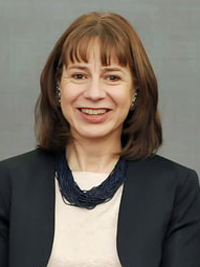
Inclusive engineering
I’m a materials engineer with a background in automotive and aerospace composite materials research, and for the past ten years have been working in the field of diversity and inclusion in engineering.
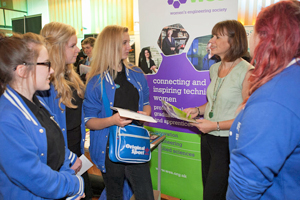
I led the Women’s Engineering Society for a number of years, and then moved into the Higher Education sector and have been a Royal Academy of Engineering visiting professor of inclusive engineering at Aston University since 2017.
I have recently started a new and exciting role at King’s College London as a Royal Society Entrepreneur in Residence, working with undergraduate students on sustainable development and the use of engineering and technology.
King’s College has a new engineering department and has an inspiring and compelling vision for 21st-century engineering and how we can use our influences as engineers to simultaneously address sustainable development and tackle social injustice, and I am really looking forward to my work in this area.
Engaging learners in new ways
COVID-19 has meant that – for me as for everybody else – all of our engagement is now delivered remotely, but universities have embraced this change hugely successfully and are continuing to offer fantastic education to students online.
In my own work with students, I have noticed an improved level of engagement as students have used the online resources to gain a better understanding of concepts. Maybe it’s because they are engaging with the content in their own environment, where they are able to re-watch parts that they haven’t understood the first time, or reference them more easily in their assessments – these could all be factors.
Of course, we are all missing seeing one another though, and I look forward to actually going into King’s College before too long to meet people face-to-face.
Addressing sustainable development and moving towards an equitable future
My overwhelming feeling at the moment is that things are starting to change. We are becoming much more aware of the role that we play, as engineers, towards addressing sustainable development and an equitable future.
COVID has absolutely shown us inequalities that exist, and how we can – and must – address these through the use of technology. The conversation has shifted markedly from needing gender balance in order to address a skills gap and to creative diverse teams who can work more creatively, to the understanding that we are absolutely building the world of the future and without representation and a voice, we will continue to be in danger of building something in which biases and discriminations continue to exist.
Getting gender balance, and balance in terms of every perspective, is the basis of inclusive engineering and this is becoming much better understood.
Talent comes from all backgrounds
COVID, as we know, has not affected people equally, and it has accentuated the inequalities that already exist. Young people who were disadvantaged before will be more disadvantaged in terms of career choices, and we must work even harder to find ways to overcome this disadvantage.
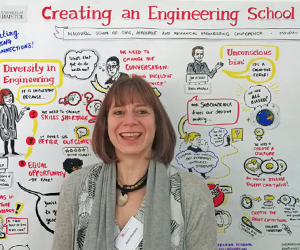
We must be careful not to undermine the universities which offer these routes for disadvantaged pupils, in favour of those routes to which only students from more privileged backgrounds have access.
Employers can play their part too by understanding that talent comes from all backgrounds and that they must look more broadly in order to create diverse teams, and not just focus on a handful of the recruitment sources that they have traditionally favoured.
Vocational qualifications are also undergoing a transformation, through the new T-levels, and we must make efforts to ensure that these are accessible to as broad a range of applicants as possible, so that we don’t perpetuate the domination of engineering and technology roles by one gender alone.
World Engineering Day for Sustainable Development
4th March is World Engineering Day for Sustainable Development, and on that day a new UNESCO Engineering report is coming out which I have contributed to as the author of the ‘Diversity and Inclusion’ chapter. This gives an overview of the current issues that we face, along with some recommendations about what we need to do to change.
Recommendations are aimed at educational establishments, professional engineering institutions, companies, governments, and individuals – and how we can use our influence to create sustainable change. It addresses both the problems we encounter within engineering, as well as our role as inclusive engineers addressing the Sustainable Development Goals and the ‘leave no-one behind’ agenda.
As one of the UK representatives of the World Federation of Engineering Organisation who have jointly published the report with UNESCO, I am looking forward to using this position to further address these recommendations.
Choosing to challenge inequality
The theme for International Women’s Day this year is Choose to Challenge, and this, for me, reflects a choice I made about five years ago, when I took a commitment to challenge inequality where I saw it.
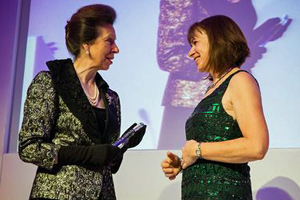
Since then, I have spoken often and widely to groups of people about how to challenge effectively and positively, so that change is possible whilst maintaining a win-win situation for both the person wanting the change, and the person (or organisation) who needs to make the change.
The recognition of inequalities or micro-inequalities, and the tools to address them, are within our power, and we must take steps wherever possible to challenge the status quo to make changes, however small, in our favour. Because otherwise how will we create a more inclusive culture and economy if we don’t say what that looks like?
Looking forward
There is a lot to look forward to, and for me, the change that we are seeing around inclusion in engineering, from the previous focus which concentrated on themes of internal diversity and inclusion, to the growing recognition that there is also a need for external focus on what we produce as engineers towards a more sustainable and equitable world, is the most exciting thing.
https://www.linkedin.com/in/dawnbonfield/

